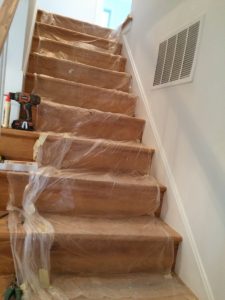Body camera fails to prove compensable workplace injury

Advances in technology do not always translate into evidence that supports an on the job injury claim. In a recent case where a Virginia police officer slipped on a stairway while she was investigating a potential burglary in progress at a private residence, the mishap was caught on video by her and two other officers’ body cameras. However, the Virginia Court of Appeals ruled that the video did not show that his injury arose out of his employment. Even though the officer was “on the job” when he fell, the appeals court upheld the Virginia Workers Compensation Commission’s denial of workers’ compensation benefits. It is not enough under Virginia law for there to be an on the job injury; there must be some “increased risk of the employment” or defect that caused the accident. The court found that neither officer body cameras nor the homeowner’s statements that she had fallen earlier on those stairs, proved a defect in the stairs.
The body cameras worn by injured law enforcement officer and two other police officers assisting in the investigation recorded his accident. The videos showed claimant walking down carpeted stairs that appeared to be in good repair. The films did not reveal any obvious defects in the stairway that caused him to slip. Rather, the video from the bodycams simply showed the officer slipping in an area where the stairway made a “u-turn” between the base of the stairs and the second floor.
According to Herndon workers comp lawyer Doug Landau, “many other states allow for compensation where a worker is injured while “on the clock” and performing work-related duties, Virginia law requires more. There must be a risk of the employment that causes the accident for the Virginia Workers Compensation Commission to find an injury is ‘compensable’ and award benefits. This is known as the “actual risk doctrine.” Lawyer Landau has posted about this legal requirement previously.
The body camera also showed the homeowner exclaiming, “Don’t hurt yourself! I just slipped down those stairs. I just slipped earlier.” The homeowner again told the officer she had fallen on the stairs earlier that day, but did not otherwise provide an explanation regarding her fall. Circumstantial evidence implying that an employee’s accident arose from her employment must determine the issue beyond mere conjecture in order to support an award of workers’ compensation benefits. The claimant’s primary argument on appeal is based on the homeowner’s statements. However, the evidence presented to the Virginia Workers Compensation Commission did not establish that a defect caused claimant to slip, and the homeowner’s statements are ambiguous concerning the cause of her fall. The appeals court found that the homeowner’s statements are unclear at best,
“Even if we assume the homeowner fell due to a defect in the stairway, no evidence established that claimant fell due to the same defect. Under these circumstances, an award of benefits would be based on pure speculation.”
The Virginia Court of Appeals denied benefits in this case (Echevarria v. City of Chesapeake). If you or someone you know or care for has been injured as the result of an accident on the job or while working off site, and there are questions about what laws apply, e-mail or call us at ABRAMS LANDAU, Ltd. (703-796-9555) at once.
